Speaking on the 74th meeting of the United Nations General Assembly in New York on Wednesday, Rouhani underlined the country's opposition to any talks under the sanctions imposed by the US and the West. His statement came on the same day that the US announced new sanctions on Chinese companies and their executive officers for allegedly transporting Iranian oil and after it doubled down on sanctions against Iran's central bank.
"According to the [International Atomic Energy Agency]...Iran has lived up to every single one of our commitments, and US sanctions are against the international laws and against [the] UN Security Council resolution," Rouhani told Muir, the anchor of 'World News Tonight.' "The more these sanctions go on, the more the hatred of the people increases toward the United States of America, and internal unity becomes more and more solid. Yes, our people are under pressure. But the Iranian economy is adapting itself in such a way to the new sanctions of the United States of America that...in the past three months, we have been put on a trajectory of economic growth, even though, prior to this, we were experiencing a negative economic growth."
Rouhani told Muir that the government and administration in Iran were not at fault for the sanctions and that US actions were to the detriment of Americans and other countries.
He called the sanctions "an economic form of terrorism" against Iranians and said they have been "extremely destructive and extremely hurtful."
"What America thought that it could accomplish with sanctions, that it would provoke our people against the administration, against the government, after a year-and-a-half, it has become very clear that our people, with extreme awareness and understanding, know that the main culprit is the United States of America's government," Rouhani said through a translator on Wednesday.
Rouhani then called US allegations that Iran was behind a recent attack on Saudi oil facilities "unfounded," and said the attack actually originated in Yemen.
"This attack was originated in Yemen, in truth. That's the truth of the matter. If the Yemeni conflict does not come to an end, much more severe attacks will be witnessed — emanating from Yemen."
Rouhani, who also addressed the UN General Assembly on Wednesday, said that peace must first be established in Yemen.
"The Yemeni issue that has been ongoing for five years, that has subjected the Yemeni people to the daily bombardment and bloodshed of an aggressor. This has angered the Yemenis."
When asked about his reaction to France, Britain and Germany's statement in which they had placed the blame on Iran for the attacks, Rouhani said that he'd spoken to those countries' leaders and said that they had not offered a "single legitimate" piece of evidence to substantiate their claims.
"They have no documentation or proof to show. ... We requested for them to furnish us the proof, evidentiary proof," Rouhani said. "But they don't. ... I announce here, very clearly and transparently, for the United States and the European countries, we wish for them, we hope for them, to show proof, evidentiary proof, so that the world can see that, at the end of the day, these allegations and accusations are unfounded."
Rouhani also told ABC why he would not be meeting with President Donald Trump.
"America has put a precondition for talks. Our position is for them to take away these preconditions," Rouhani said on Wednesday. "America says that it will put Iran under maximum pressure until we talk and negotiate. ... America must do away with that precondition, take away all of the sanctions, and maximum pressure and wish to conduct talks. Then, in a free and responsive atmosphere, only then, I think these...efforts will bear fruit between the two countries."
"They went back on their commitments, of the commitments given by the American government, and against [U.N. Security Council] Resolution 2231," Rouhani said. "We waited for one year, despite the fact that the Europeans had promised us to make up for the absence of the United States of America within this agreement. ... Since then, they were unable to deliver on those promises. Therefore, we announced, clearly, that according to Articles 26 and 36 of the [Joint Comprehensive Plan of Action], it says that, if the counterpart...decrease[s] its commitment, we also reserve that right."
Rouhani said, however, that the International Atomic Energy Agency has continued to conduct oversight on Iran's nuclear facilities.
Asked whether Rouhani would call Trump, he said "Mr. Trump would be wiser to go back to the commitments given by the United States of America in the year 2015 and live up to those commitments fully. ... He must give valid reasons for trampling upon such commitments without a valid reason [for] why he has decided to trample upon and violate UN Security Council Resolution 2231. So this must be explained to the officials at the United Nations. ... So the ball today is in the field of the United States of America," he said. "The fundamentals between the United States and Iran is that for trust to be restored."
"What I think has really happened in Mr. Trump's administration is not a matter of destroying the [Joint Comprehensive Plan of Action], but more important than that, what has been destroyed is trust between the two sides, and even between the United States and other countries. ... There are a variety of commitments that have been violated," Rouhani said.
"The United States of America has decreased its trust vis-à-vis most of the world. This is not to the benefit of the American people or the American government," he added. "America must return to its commitments, including the [Joint Comprehensive Plan of Action], so that what was created in the form of a gap of trust between the two countries can be mended."
MNA/PR


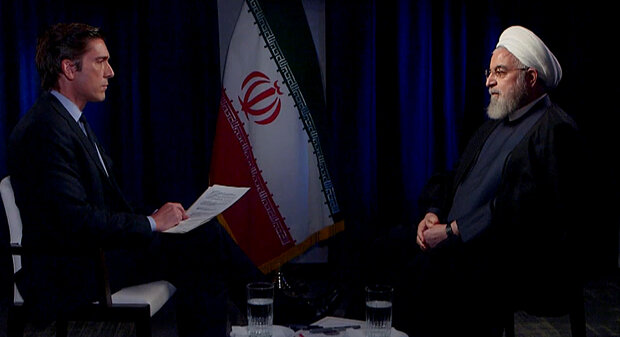
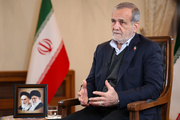
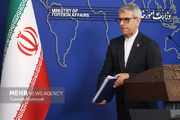

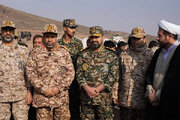

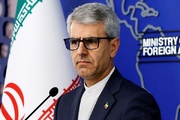
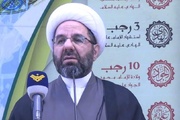


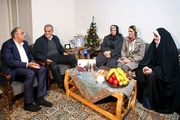





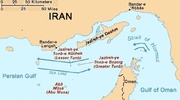







Your Comment